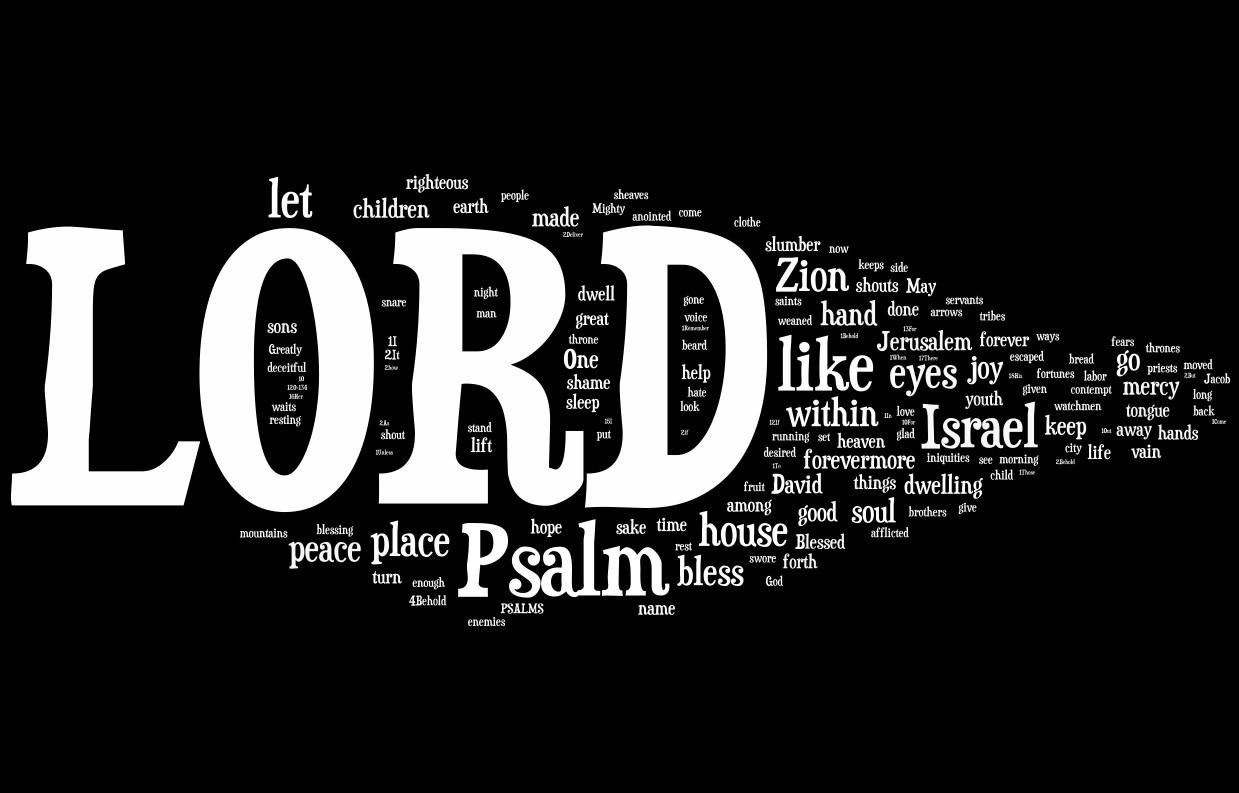Welcome to Chelsey D. Hillyer's Psalm Journal for the Fall 2013 Book of Psalms class at Eden Theological Seminary! If you are visiting this page, you are likely one of three people: Chelsey, checking up on her work; Dr. Clint McCann, also checking up on her work; or a random person who has stumbled upon this psalmy goodness. In any case, I hope you enjoy.
The site may be navigated in three ways:
1) Simply continue to scroll down to read the posts in reverse-chronological order of their posting. When you get to the end of this page, click Older Posts to keep reaching back.
2) You can use the Blog Archive navigation on the right. Posts will be ordered by month they were published. Just click on a particular month to see a drop-down of the posts for that month.
3) Below, you will find an index with links to all the posts. This allows you to use this post as a main navigation.
There are two posts per psalm--one with exegetical thoughts and collected images, and one that is more focused on worship planning. In the worship planning posts, I particularly focused on finding appropriate music for a worship service that would include the given psalm.
If you would like to leave feedback in the comments section of the site, please feel free to do so (especially you, Dr. McCann).
Index:
Psalm 1:
Exegetical Thoughts and Worship Resources
Psalm 13:
Exegetical Thoughts and Worship Resources and Small Group Exercise
Psalm 69:
Exegetical Thoughts and Worship Resources
Psalm 82:
Exegetical Thoughts and Worship Resources
Psalm 32:
Exegetical Thoughts and Worship Resources
Psalm 100:
Exegetical Thoughts and Worship Resources
Psalm 104:
Exegetical Thoughts and Worship Resources
Psalm 24:
Exegetical Thoughts and Worship Resources
Psalm 133:
Exegetical Thoughts and Worship Resources
Works Referenced
The site may be navigated in three ways:
1) Simply continue to scroll down to read the posts in reverse-chronological order of their posting. When you get to the end of this page, click Older Posts to keep reaching back.
2) You can use the Blog Archive navigation on the right. Posts will be ordered by month they were published. Just click on a particular month to see a drop-down of the posts for that month.
3) Below, you will find an index with links to all the posts. This allows you to use this post as a main navigation.
There are two posts per psalm--one with exegetical thoughts and collected images, and one that is more focused on worship planning. In the worship planning posts, I particularly focused on finding appropriate music for a worship service that would include the given psalm.
If you would like to leave feedback in the comments section of the site, please feel free to do so (especially you, Dr. McCann).
Index:
Psalm 1:
Exegetical Thoughts and Worship Resources
Psalm 13:
Exegetical Thoughts and Worship Resources and Small Group Exercise
Psalm 69:
Exegetical Thoughts and Worship Resources
Psalm 82:
Exegetical Thoughts and Worship Resources
Psalm 32:
Exegetical Thoughts and Worship Resources
Psalm 100:
Exegetical Thoughts and Worship Resources
Psalm 104:
Exegetical Thoughts and Worship Resources
Psalm 24:
Exegetical Thoughts and Worship Resources
Psalm 133:
Exegetical Thoughts and Worship Resources
Works Referenced



